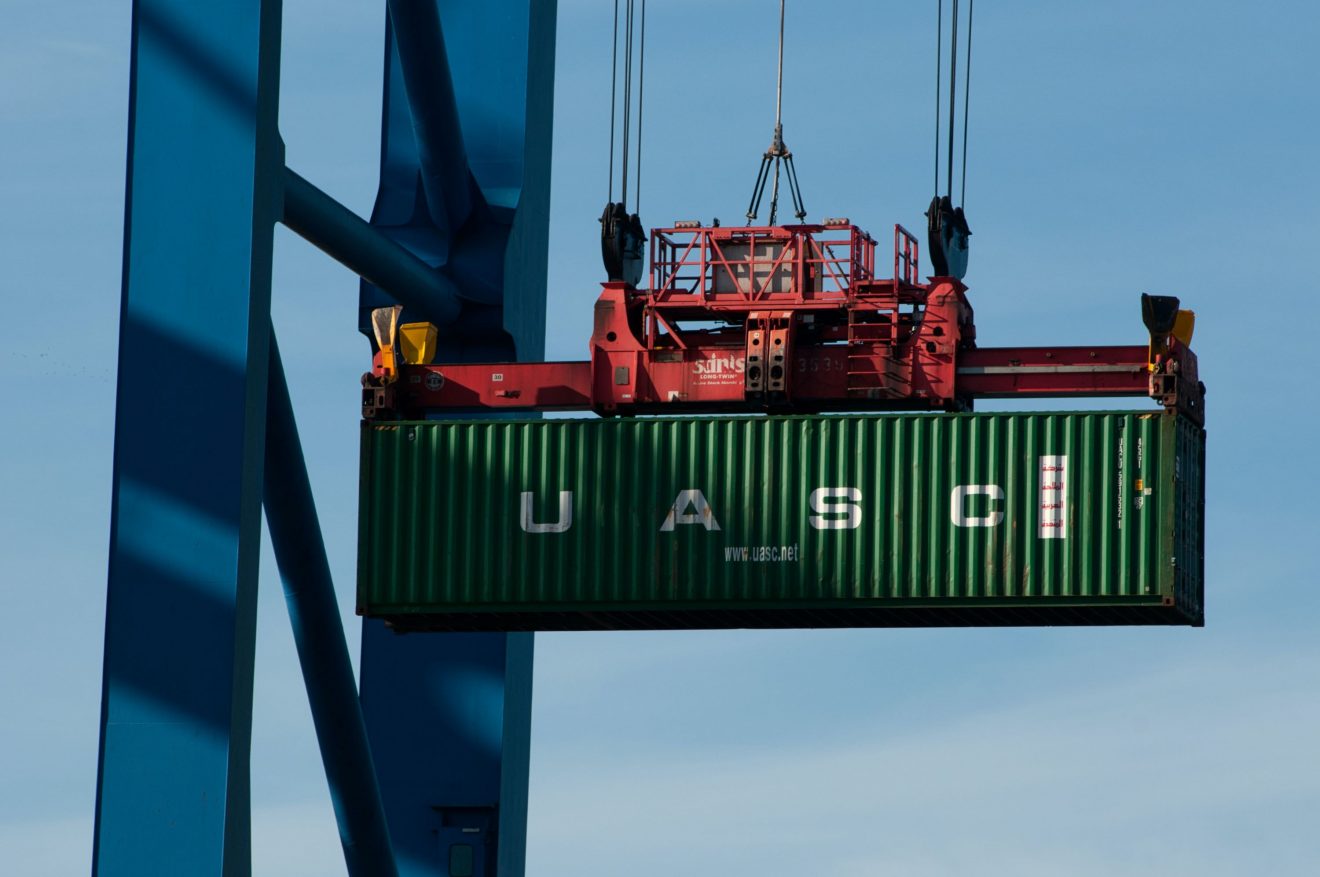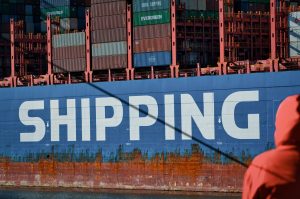Frequently Asked Questions about Clearing and Forwarding in Africa
Clearing and forwarding in Africa has become an essential part of the logistics industry, especially with the increasing globalization of businesses. Freight forwarding companies specialize in arranging the transportation of goods from one place to another, usually across international borders. Freight forwarding in Africa is a complex process that requires a great deal of expertise. It also needs knowledge of international customs regulations, export/import regulations, and transportation regulations.
Freight forwarding companies in Africa often coordinate the loading, transport, and delivery of goods using a variety of modes of transport such as air, rail, road, and sea. They also handle the necessary paperwork and documentation. The documentation ensures that the goods reach their destination safely and on time. Freight forwarding companies in Africa also provide services such as warehousing, cargo tracking, and customs clearance.
What is freight?
Freight is the transportation of goods and materials from one place to another. It includes both the loading and unloading of cargo. It also involves the storage, handling, and delivery of goods. Freight can be transported by truck (road), train (railway), ship (ocean or sea), or plane (air).
What is freight forwarding?
Freight forwarding is the process of arranging for the transportation of goods and materials from one place to another. Freight forwarders specialize in arranging the shipment of goods by various modes of transport, including air, rail, road, and sea. They also provide services such as warehousing, cargo tracking, and customs clearance.
What is cargo?
Cargo is the goods and materials that are being transported by a freight carrier. Cargo can include items such as raw materials, finished products, and personal belongings. It is usually loaded onto a truck, train, ship, or plane for transportation.
What is a warehouse?
A warehouse is a large, commercial building used for the storage of goods and materials. Warehouses are typically used by manufacturers, suppliers, freight forwarders, and retailers. Warehouses are equipped with various storage systems, such as racks, shelves, and containers, to ensure that goods are stored safely and efficiently.
What is warehousing?
Warehousing is the process of storing goods in a warehouse. It involves a variety of activities such as receiving, storing, and shipping goods. Warehousing also includes the management of inventory, the tracking of goods, and providing customer service.
Can I get a trusted freight forwarding company in Africa?
Yes, there are many trusted freight forwarding companies in Africa. It is important to research different companies and compare their services and prices before making a decision. You can also look for customer reviews and testimonials to get an idea of the company’s reputation.
How do you know that a freight forwarding company is genuine?
The best way to know if a freight forwarding company is genuine is to do your research. You should read reviews and testimonials to get an idea of the company’s reputation. Additionally, ask the company for references and contact those references to get an idea of the quality of their services. Finally, look for freight forwarding companies that are certified by the International Air Transport Association or other reputable organizations.
What is the freight forwarding process?
The freight forwarding process involves a variety of steps and activities. The process typically begins with the customer’s request for a quote. The freight forwarder then works with the customer to select the most suitable mode of transport and negotiate the best terms and conditions. Once the terms and conditions are agreed upon, the freight forwarder arranges for the loading, transport, and delivery of the goods. The freight forwarder also provides the necessary paperwork and documentation. This helps to ensure that the goods reach their destination safely and on time.
Cargo transportation by road in Africa
Cargo transportation by road is the most common and cost-effective method of freight forwarding in Africa. Road transportation is typically used for short-distance and local deliveries. It is also used for the transportation of perishable goods, as well as for bulky and heavy items. Road transportation is often the preferred method for freight forwarding in Africa due to its flexibility and affordability.
Cargo transportation by railway Africa
Cargo transportation by railway is a popular and cost-effective method for freight forwarding in Africa. Rail transportation is typically used for long-distance deliveries, as it offers a more direct route. Railway transportation is also used for the transportation of hazardous goods, as well as for the transportation of heavy and bulky items. Rail transportation is often the preferred method for freight forwarding in Africa due to its reliability and cost-effectiveness.
Cargo transportation by air in Africa
Cargo transportation by air is a fast and reliable method of freight forwarding in Africa. Air transportation is typically used for the transportation of fragile and perishable goods, as well as for the transportation of time-sensitive goods. Air transportation is often the preferred method for freight forwarding in Africa due to its speed and efficiency.
How do I monitor my cargo while it is being transported?
The best way to monitor your cargo while it is being transported is to use a cargo tracking service. Most freight forwarding companies in Africa offer cargo tracking services, which allow customers to track their cargo in real time. This allows customers to get an up-to-date status of their cargo, as well as to monitor the progress of the shipment.
What are perishable cargo and freight?
Perishable cargo and freight are goods and materials that are sensitive to temperature and require special handling and storage. Examples of perishable cargo include food, plants, flowers, and pharmaceuticals. Perishable cargo and freight require careful handling and should be transported quickly to ensure that the goods arrive in good condition. Freight forwarders in Africa are experienced in handling and transporting perishable cargo and freight.
How do I monitor perishable cargo and freight while it is being transported?
The best way to monitor perishable cargo and freight while it is being transported is to use a temperature-controlled cargo tracking system. Most freight forwarders in Africa offer temperature-controlled cargo tracking services. These allow customers to track their cargo in real time and monitor the temperature of the goods. This allows customers to ensure that the goods remain in optimal condition throughout the transport process.
Is it safe to use a freight forwarding company while transporting my cargo?
Yes, it is safe to use a freight forwarding company while transporting your cargo. Freight forwarders are experienced in arranging the transportation of goods and materials and handling the necessary paperwork and documentation. They also provide services such as cargo tracking, customs clearance, and warehousing. However, it is important to do your research and select a reputable freight forwarder to ensure that your goods are transported safely and on time.
Who does the clearing and forwarding of my goods?
The clearing and forwarding of your goods is typically handled by your freight forwarder. Freight forwarders are experienced in handling the necessary paperwork and documentation to ensure that the goods reach their destination safely and on time. They also provide services such as cargo tracking, warehousing, and customs clearance.
Who does the documentation during the clearing and forwarding of my goods?
The documentation for the clearing and forwarding of goods is typically handled by the freight forwarder. Freight forwarders are experienced in handling the necessary paperwork and documentation to ensure that the goods reach their destination safely and on time. They also provide services such as cargo tracking, warehousing, and customs clearance.
What are some of the documents required during the clearing and forwarding of goods in Africa?
Some of the documents required during the clearing and forwarding of goods in Africa include an air waybill, a certificate of origin, a packing list, and an invoice. Additionally, some countries may require additional documents such as a certificate of insurance, a certificate of conformity, a certificate of quarantine, and a certificate of analysis. It is important to check with the freight forwarder and the relevant authorities to ensure that all necessary documents are obtained.
What is a packing list in freight forwarding?
A packing list is a document that is used in freight forwarding to list the items that are being shipped. The packing list typically includes a description of each item, the quantity, the weight, and the dimensions. The packing list is used to ensure that all the items have been shipped. It is also meant to ensure that the shipment is accurate and complete.
What is an air waybill in freight forwarding?
An air waybill is a document that is used in freight forwarding to provide the details of a shipment. The air waybill typically includes the shipper’s name, the consignee’s name, the origin and destination, the cargo description, and the total weight of the shipment. The waybill is used to provide an accurate record of the shipment and is used for tracking and billing purposes.
What is a certificate of origin in freight forwarding and cargo transportation?
A certificate of origin is a document that is used in freight forwarding and cargo transportation to prove the origin of the goods being shipped. The certificate of origin typically includes the name and address of the shipper, the country of origin, and the description of the goods. The certificate of origin is used for customs clearance purposes and is often required for international shipments.
What is an invoice in freight forwarding and cargo transportation?
An invoice is a document that is used in freight forwarding and cargo transportation to provide a record of the goods shipped and the amount due. The invoice typically includes the shipper’s name and address, the consignee’s name and address, the description of the goods, and the total amount due. The invoice is used for billing purposes and is often required for international shipments.
What is a certificate of insurance in clearing and forwarding?
A certificate of insurance is a document that is used in freight forwarding and cargo transportation to provide proof of insurance for the goods being shipped. The certificate of insurance typically includes the name of the insurer, the policy number, the coverage limits, and the period of coverage. The certificate of insurance is used to provide financial protection in the event of loss or damage to the goods.
What is a certificate of conformity in clearing and forwarding?
A certificate of conformity is a document that is used in freight forwarding and cargo transportation to certify that the goods being shipped meet the applicable standards and regulations. The certificate of conformity typically includes the name of the manufacturer, the type of goods, the standards that were met, and the date of certification. The certificate of conformity is used to ensure that the goods meet all applicable standards and regulations.
What is a certificate of quarantine in clearing and forwarding?
A certificate of quarantine is a document that is used in freight forwarding and cargo transportation to certify that the goods being shipped have been inspected and cleared for export. It typically includes the name of the issuing authority, the type of goods, the date of inspection, and the date of clearance. This certificate is also used to ensure that the goods meet all applicable import/export regulations.
How many days does clearing and forwarding of cargo take in Africa?
The amount of time it takes to clear and forward cargo in Africa depends on the mode of transportation, the size and type of cargo, and the origin and destination of the shipment. In general, air freight typically takes 1-3 days, while sea freight can take up to 8-10 weeks. It is best to contact your freight forwarder for an estimated delivery time for your specific shipment.
Frequently asked questions about clearing and forwarding in Africa
-
What documents are required for clearing and forwarding in Africa?
The documents required for clearing and forwarding in Africa typically include an air waybill, a certificate of origin, a packing list, and an invoice. Additionally, some countries may require additional documents such as a certificate of insurance, a certificate of conformity, a certificate of quarantine, and a certificate of analysis.
-
Is there a tracking system for cargo during the clearing and forwarding process in Africa?
Yes, most freight forwarding companies in Africa offer cargo tracking services that allow customers to track their cargo in real time. This allows customers to get an up-to-date status of their cargo, as well as to monitor the progress of the shipment.
-
What is the cost of clearing and forwarding goods in Africa?
The cost of clearing and forwarding goods in Africa depends on the mode of transport, the size and type of cargo, and the origin and destination of the shipment. It is best to contact your freight forwarder for an estimated cost for your specific shipment.
Conclusion
Freight forwarding in Africa is a complex process that requires expertise, and knowledge of international customs regulations, and transport regulations. Freight forwarders in Africa specialize in arranging the transportation of goods by various modes of transport. These include; air, rail, road, and sea. They also provide services such as warehousing, cargo tracking, and customs clearance. It is important to research different freight forwarders and select a reputable one to ensure that your goods are transported safely and on time.



